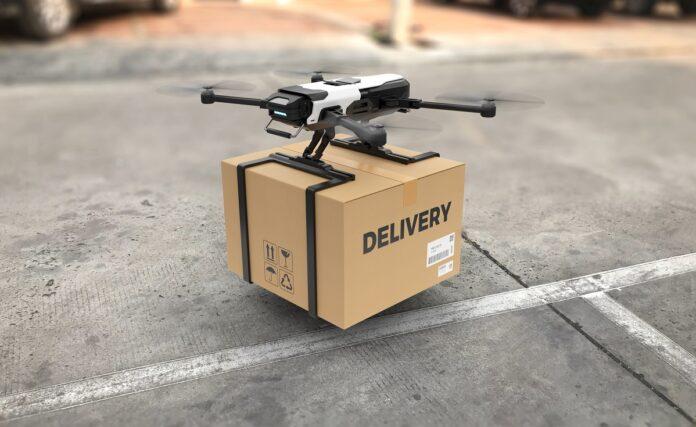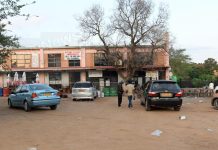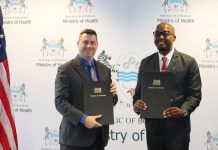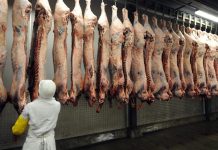Africa-Press – Botswana. Botswana is eager to take a chance on the feasibility of the use of drones to transport medical products including blood products, drugs and commodities to rural areas from urban areas.
Reports indicate that the problem of healthcare access is one that governments and NGOs the world over have been trying to solve for decades. While the use of drones could be a potential solution, it comes with challenges.
Botswana tested the “potential solution” a few years ago when a projecte dubbed “The Drones for Health” was launched in collaboration between the country’s Ministry of Health and Wellness, the Botswana International University of Science and Technology (BIUST), the United Nations Population Fund, and Dutch drone company Avy.
The aim of the pilot project was to demonstratee how drones can expedite delivery of essential and emergency medical supplies to far-flung communities. It is not clear what the feasibility and challenges of such a project were as they were not shared with the public thereafter.
Now, the Ministry of Health (MoH) together with its partners including UNFPA ( United Nations Fund for Population Activities), Botswana Institute for Technology Research and Innovation (BITRI), Botswana Communications Regulatory Authority (BOCRA) are collaborating to undertake a three-phase proof of concept (pilot) project in which medical products including blood products, drugs and commodities are transported through the use of remotely piloted aircrafts (drones) as an innovation to improve health care delivery in general.
A document seen by this publication shows that the phased intervention aims to revolutionize the supply chain to improve accessibility and availability of drugs and life saving commodities, including blood and blood products for hard-to-reach communities, while also saving costs, reducing lead delivery times and inefficiencies by using drone technology.
“This is consistent with the Sustainable Development Goals (SDGs) agenda which identifies innovation as critical to accelerating progress towards the global development aspirations. Phase I of the pilot project which entailed co-creation, prototyping, community engagement and experimentation was successfully completed in 2021,” reads the document.
It states that in a bid to harness innovation to leapfrog progress towards achievement of SDG Goal 3 – Good Health and Wellbeing, and following the outcomes and lessons learnt from phase I, the MoH has taken a decision to progress the project to phase II. “This phase will explore delivery of live products (including drugs, blood and blood products) within the Okavango Health District,” the document says.
This phase also includes development of a business model to inform stakeholder investment in the project. The document says the choice and adoption of a model for integrating drones in support of the supply chain of health products in Botswana to reach the furthest left behind remains a question. Therefore, the document says, the collaborators in the project seek to engage a team of consultants to support this exercise which will conduct an in-depth analysis of existing models in Africa and beyond; and to propose suitable models for the Botswana Medical Drones delivery project.
Among other things, the Ministry of Health and its partners seek from the consultant to conduct an analysis of the financial, regulatory, and socio-cultural aspects of drones-for-health systems, with bias towards similar systems in Africa (including Rwanda, Ghana and Benin) and/or upper middle-income countries.
“For Botswana, financial, regulatory and socio-cultural aspects may be determined by consultations with key informants, communities within the vicinity of Phase I implementation sites and those proposed for Phase II,” the document says. The consultant will also be expected to develop and fine tuning the Botswana drones for health business model, informed by the analysis, propose at least two business models for the use of drones in Botswana in support of the health sector supply chain, including the details of their viability backed by approximate quantitative data (A comparison of the two business models in other countries will be ideal.
The consultant will also be expected to guide the choice of model as informed by the economic, internal regulation of the use of drones and the socio-cultural factors and develop a final report integrating the final business model for Botswana including advantages and disadvantages, and highlighting institutional and regulatory aspects, partnerships and financial implications.
According to information reaching this publication, such a project comes with challenges. It is understood that the government should have taken it upon itself to develop some guidelines so that they do not come into conflict with domestic laws instead of relying on the envisaged input of the consultant.
For instance, reports indicate that the Indian Council of Medical Research, India’s peak body for biomedical research, has published its guidance for using drone technology in healthcare.
After the guidelines were published, Dr Balram Bhargava, director-general of ICMR in India was quoted as saying that; “Since the usage of drones in the healthcare system is a relatively new venture in the country (India), there are possibilities of confusion and lack of clarity on standard operating procedures.”
For More News And Analysis About Botswana Follow Africa-Press






